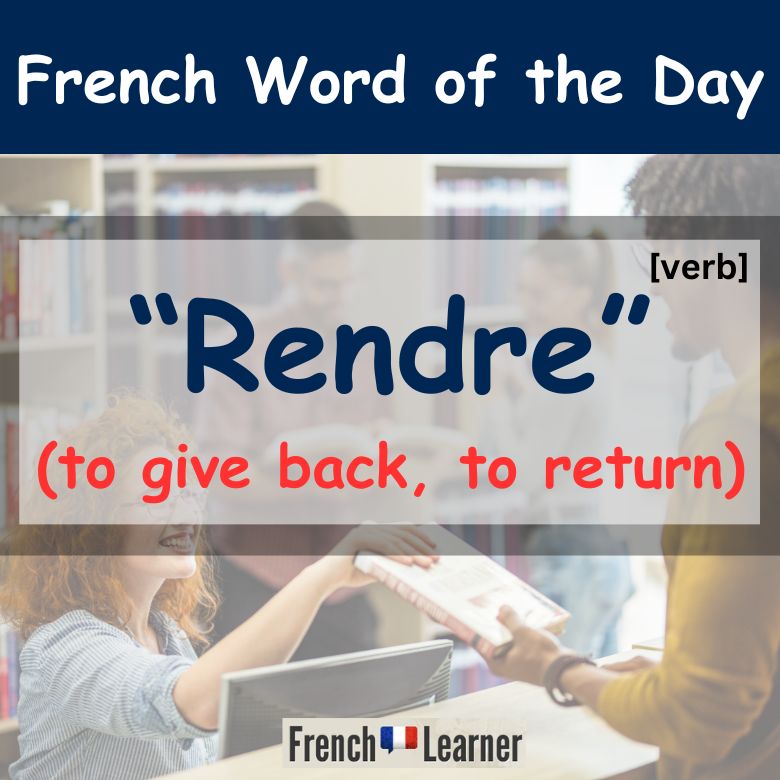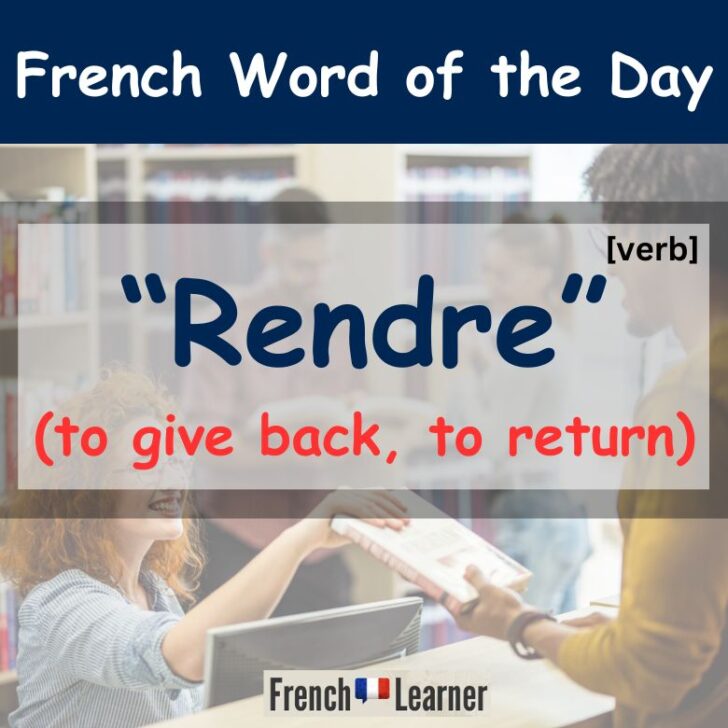Today we’ll have a look at the French verb rendre. The main definition of rendre is “to give back” or “to return”. However, this is a highly versatile verb in the French langauge with meanings even including “to vomit”! We will elaborate on this in our example sentences.
rendre
to give back, to return

Rendre
Word origin
TheFrench verb rendre comes from the classic Latin verb reddere, which has definitons including “to deliver”, “to hand over” and “to give back”.
Rendre conjugation
Rendre is a regular RE verb. This means that its endings are the same as other regular RE verbs when conjugated in the present tense.
Je rends I give back
Tu rends You give back
Il, elle rend He, she gives back (informal, singular)
Nous rendons We give back
Vous rendez You give back (formal, plural)
Ils, elles rendent They give back
Example sentences
To give back, to return
One of the most common usages of rendre is “to give back” and “to return”. The grammatical structure is rendre + object + à + recipient.
Je rends le livre à la bibliothèque
I return the book to the library.
Martin m’a rendu les clés après avoir emprunter la voiture.
Martin return the keys to me after having borrowed the car.
To drive + adjective
Another usage of rendre is “to drive” or “to make” + adjective. For example:
Arrête ! Tu me rends fou !
Stop! You’re driving me crazy!
To get to
In the reflexive form, se rendre à + place means “to get to”.
En général, je me rends au travail en voiture.
Generally, I get to work by car.
To visit, to go see
The structure se rendre chez + person means “to visit” or “to go see”. Another translation is “to go to somebody’s place”. The French preposition chez means “at the house of”.
Le prof s’est rendu chez Thomas pour ses leçons.
The teacher went to Thomas’ house for the lessons.
Make yourself + adjective
Another usage or rendre is “make yourself”. For example:
Rends-toi utile et fais quelque chose !
Make yourself useful and do something!
To realize
The expression se rendre compte means “to realize”. We could easily write an entire post on this expression but here’s a quick example:
Je me rends compte de mes erreurs.
I realize my errors.
To vomit
Finally, one surprising usage of rendre is “to vomit”. The more formal verb for “to vomit” is vomir.
Sylvie a mangé trop vite et elle a rendu toutes ses frites.
Sylvie ate too fast and vomited all her fries.
To visit a person
The verb rendre is also used for “visiting people” in the construction rendre visite à + person. For example, je rends visite à mon ami (I visit my friend).
Conclusion
Et voilà ! You now have a much better idea of how to use rendre in French! Now check our other Word of the Day verb lessons covering essayer (to try), bosser (to work) and quitter (to leave).

